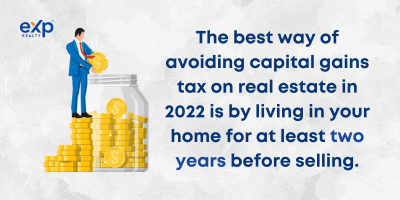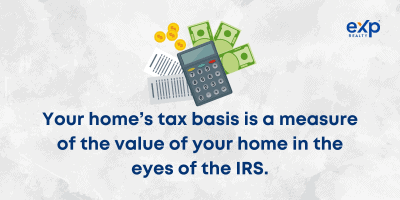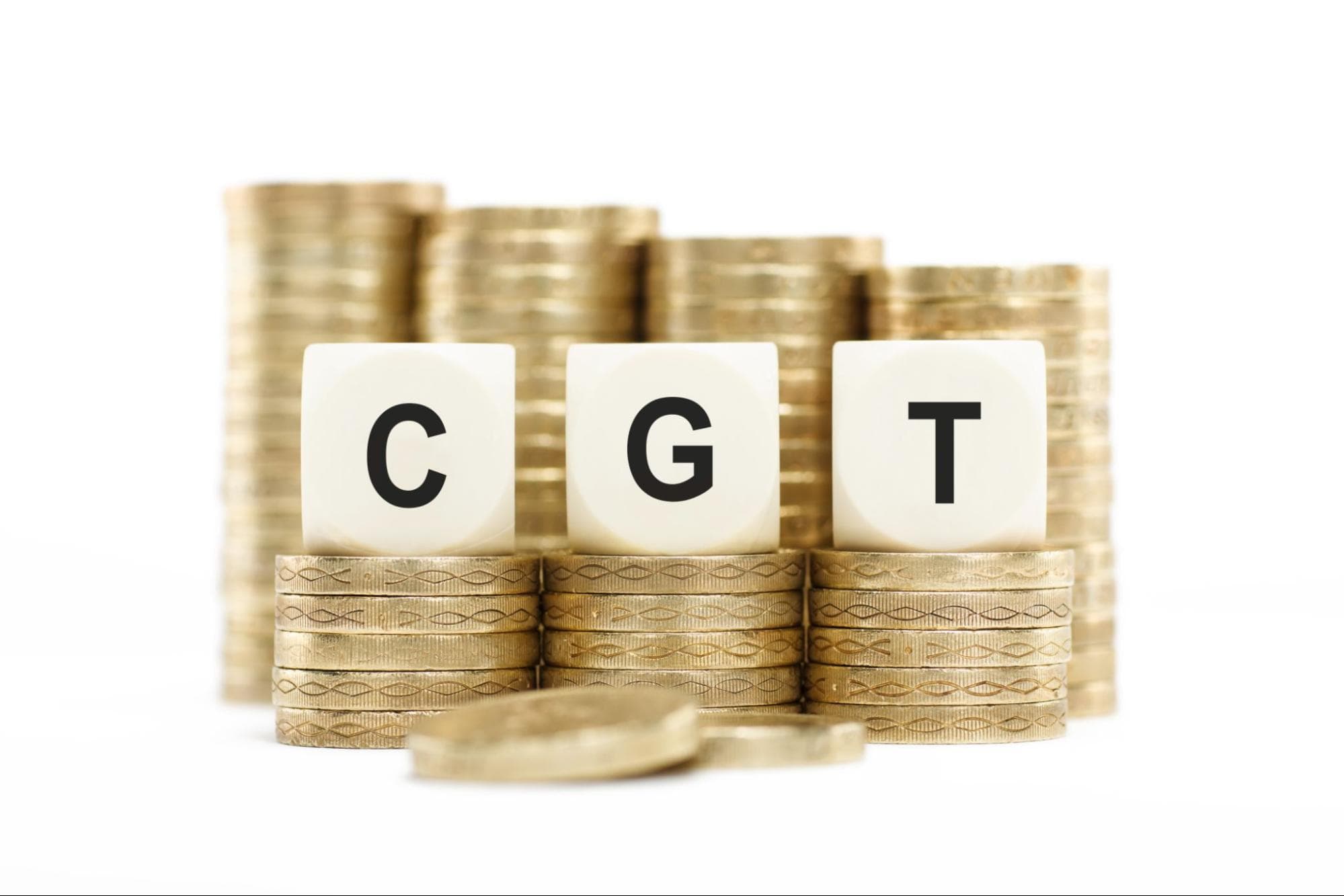Capital gains tax sounds much more frightening than it actually is. If you’re a homeowner looking to sell your property in a high-appreciating market like Raleigh, NC real estate, you might be worried that the profit you’ll make from that sale will be subject to a heavy tax. Fortunately, avoiding capital gains tax on real estate in 2022 is relatively easy, and most homebuyers regularly don’t have to worry about them.
What Is Capital Gains Tax?

Capital Gains Tax is a tax levied on you when you sell an asset for more than what you bought it for. That profit that you make from such a sale is called capital gains. When you profit from the sale of anything from stocks, bonds, and real estate, you might be subject to capital gains tax. We say ‘might’ here because it gets much more complicated than simply being taxed for any profit, so next we’re going to dive into all the little exceptions helpful to avoiding capital gains tax on real estate in 2022.
How Does Capital Gains Tax Work In Real Estate?
In real estate, there are two types of capital gains to be mindful of: short-term capital gains, and long-term capital gains.
*note: if you’re in the house-flipping business, your profits will most likely be taxed as regular income (it is your business, after all) and not as capital gains.
Short-Term Capital Gains
Short-term capital gains are any profits you make from the sale of an asset purchased within a year prior to the sale. If you bought a house in 2021 and sold it within the next 365 days, any profits from that sale would be considered short-term capital gains. The tax levied on short-term capital gains is much, much higher than long-term capital gains, as high as 38% depending on your income.
Long-Term Capital Gains
Long-term capital gains are any profits you make from the sale of an asset that you have held for more than a year. Most homeowners will make long-term capital gains from the sale of their home. Technically, long-term capital gains taxes are much milder than their short-term counterparts. The tax is measured on your income, divided into three brackets:
- 0% for up to $41,675 ($83,350 if married and filing jointly)
- 15% between $41,675 ($83,350 if filed jointly) and $459,750 ($517,200)
- 20% for everything up.
Let’s say you file jointly with your partner and have a taxable annual income of $80K. You just sold your home and made about $100K off the sale. How much in capital gains tax will you have to pay? Remember the tax is levied based on your income, not the profit. Because, in this instance, you are married and filed jointly, and make $85K a year, you fall within that second tax bracket and will be subject to a 15% capital gains tax.
But not really.
Capital Gains Tax Exceptions and Exemptions
One of the most common ways of avoiding paying capital gains taxes on real estate in 2022 is to use the exemption that owner-occupied real estate receives from the IRS. If you’re selling your principal residence, you can have up to $250K of the capital gains made from a home sale excluded from the capital gains tax. If you’re married and filing jointly, that number jumps up to $500K.
For a home to qualify as your principal residence, you must have lived in the house for at least two years prior to the sale of the home. Those two years don’t have to be consecutive, just 730 days of living in the house. To verify that your principal residence is your principal residence by checking your utility bills, driver’s license, and voter registration.
 Thanks to this exemption, most homeowners can avoid paying any capital gains tax on the sale of their primary home. Even if you’re very fortunate and make a profit over $500K on the sale of your home, and the capital gains tax is applied, it only applies to the remainder over that $500K. Without a doubt, the best way of avoiding capital gains tax on real estate in 2022 is by living in your home for at least two years before selling.
Thanks to this exemption, most homeowners can avoid paying any capital gains tax on the sale of their primary home. Even if you’re very fortunate and make a profit over $500K on the sale of your home, and the capital gains tax is applied, it only applies to the remainder over that $500K. Without a doubt, the best way of avoiding capital gains tax on real estate in 2022 is by living in your home for at least two years before selling.
One quick word to the wise: this exemption can only be used once every two years. Let’s say you have two homes and you’re looking to sell both. Under current law, you can only use your exemption on one of those houses if you sell both within a two year period. So you could sell both homes and have $250K exempted from one sale, but pay full capital gains tax on the other. Or, you could sell one with the exemption, wait two years, and sell the other with the exemption.
Other Ways of Avoiding Capital Gains Tax On Real Estate in 2022
If you’re selling real estate other than your principal residence, it might seem like you have no recourse from paying capital gains tax. But there are still a few options to mitigate the tax, if not outright avoid it.
With real estate other than your principal residence or personal home, you can use capital losses to offset capital gains. Let’s say you sell one parcel of land, 10 acres for $30K, and make $8K in capital gains. But later that year you sold another 10 acres for $20K and lost $4K on it. When it comes to capital gains outside the sale of your personal home, you can use your capital losses to offset those gains, to a certain extent.
The IRS allows you to use $3K of your losses against your gains each year. With losses over $3K, the money carries over to the next year and so on. So when you pay your capital gains tax after selling those two ten acre parcels, you can deduct $3K from that $8K gain, and only have to pay taxes on $5K rather than the full of $8K. And since you still have $1K of loss that carries over to the next year, you can use that $1K to offset any gains you make in the next year. This is the basic principle of offsetting capital gains with capital losses.
Remember, you cannot deduct capital losses for a personal home sale, they are meant to be used for other types of property, and fall more under the category of business and investment. Seeing how there’s a good chance you can qualify for a $250K exemption on the capital gains of your personal home sale, not being able to deduct capital losses from this gain is moot.
One More Way Of Avoiding Capital Gains Tax On Real Estate in 2022
Increase Your Home’s Tax Basis

Capital gains are all about profits, and in real estate, your taxable profits are based on the tax basis of your home. Your home’s tax basis is a measure of the value of your home in the eyes of the IRS. This includes what you bought the home for (the cost basis) as well as any major improvements you make to the home up to the date of sale. Let’s look at an example:
Let’s say you bought a home with cash for $150K, giving it a tax basis of $150K. One year you add a new bedroom, a garage, finish the basement, all amounting to about $75K in improvements. This bumps your tax basis up to $225K. Then you go and get a real estate agent and sell your home for $250K. Technically you made $100K comparing bought price for sold price, but because your tax basis is much higher than what you started with, the IRS will see your taxable gain as only $25K.
Now, $75K improvements is a bit extreme, but it serves to demonstrate the point that increasing your home’s tax basis is a great way of avoiding capital gains tax on real estate in 2022. Couple that with exempting your home as a principal residence, and you can easily avoid having to pay any capital gains tax at all.





